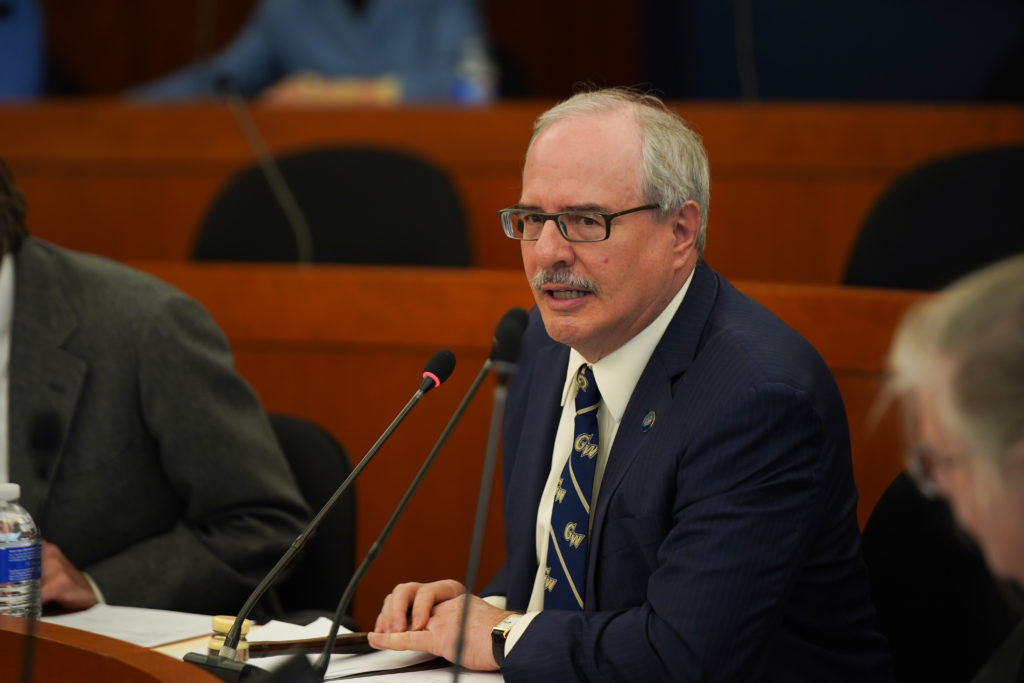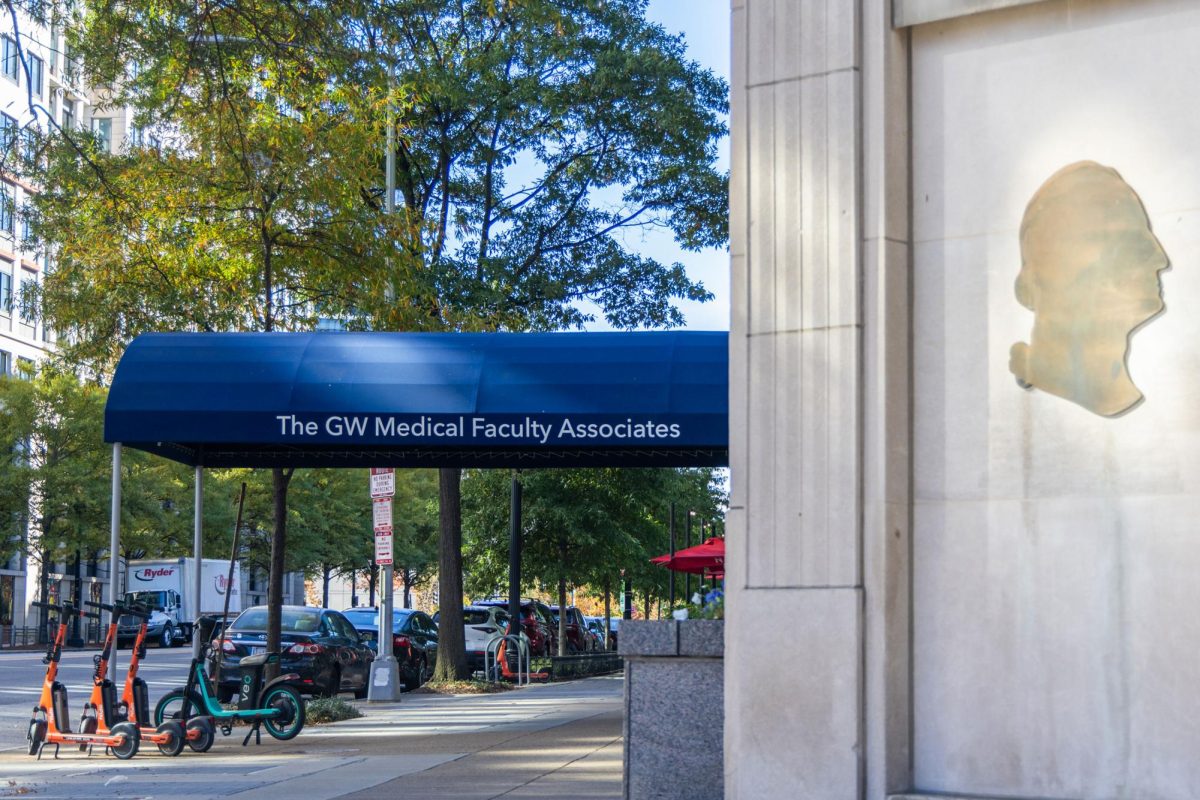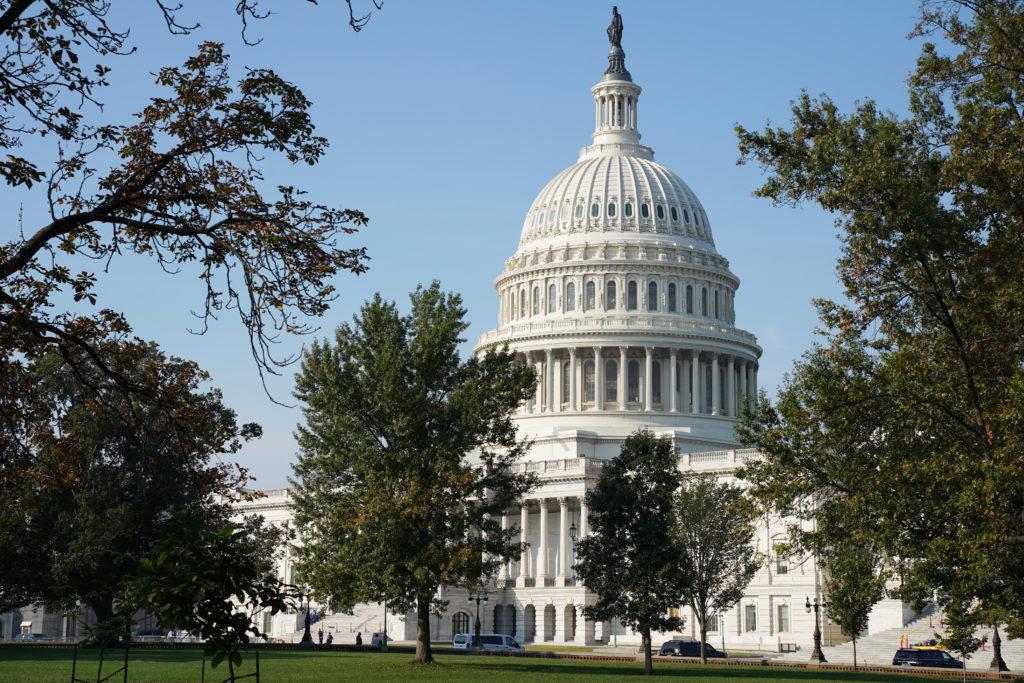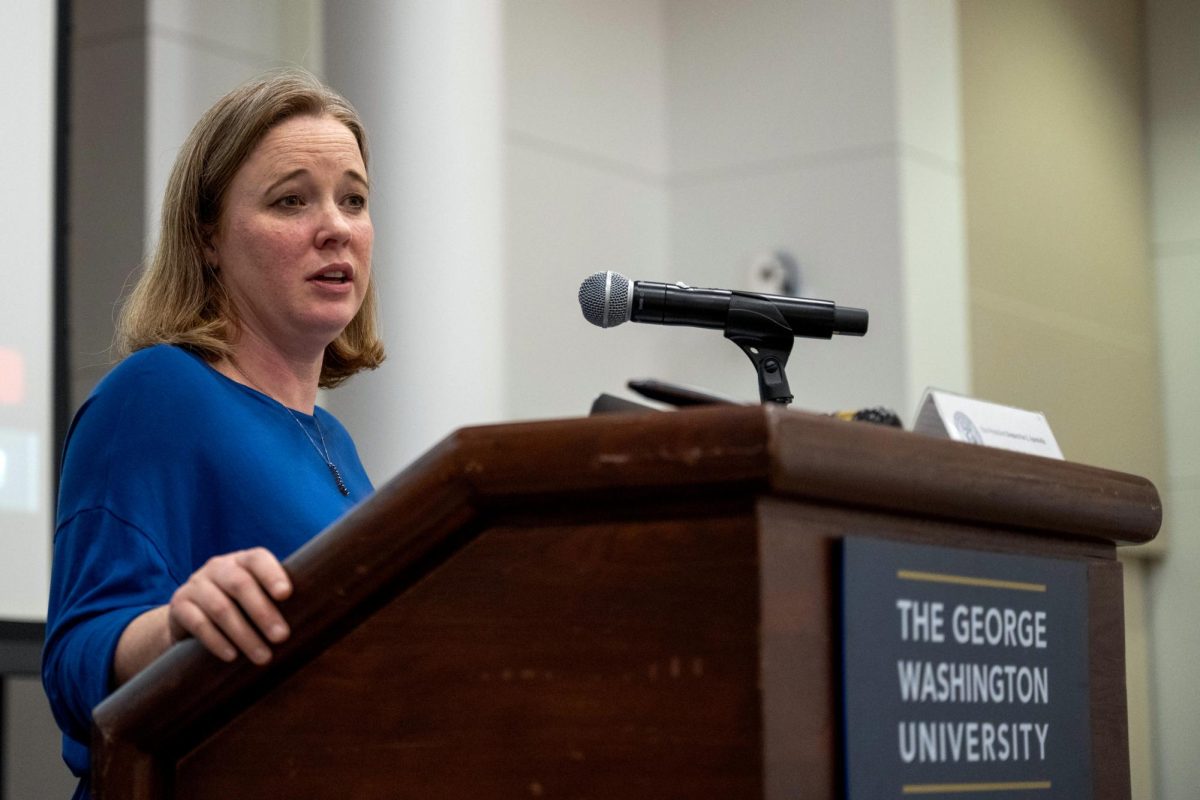University President Thomas LeBlanc said officials are working to nearly double the amount of funds readily available to GW as COVID-19 continues to drain the University’s coffers.
LeBlanc said at a Faculty Senate meeting Friday he now projects the University will lose $25 million through the end of the fiscal year related to COVID-19 efforts, one day after he said the sum was estimated at about $38 million. GW currently has about $600 million in cash and other financial assets readily convertible into cash, and officials are working with banking partners to increase that figure to $1 billion, he said.
“At present, we believe this is the right choice right now,” LeBlanc said at the meeting. “There is every reason to believe we will be able to secure that liquidity.”
He said the $25 million projection does not include impacts of COVID-19 on the University’s medical enterprise and funding from the federal coronavirus bill. The GW Hospital suspended elective surgeries last month to allocate more resources for COVID-19 patients, and GW is poised to receive as much as $10.7 million from the recently passed federal spending package.
Administrators froze nonessential hiring and suspended most capital projects – excluding renovations on Thurston Hall, which will continue – last week to maintain enough liquidity to continue daily operations in the wake of the virus.
Some faculty at the meeting questioned the decision to move forward with Thurston renovations in light of the financial uncertainty caused by the virus.
“Given these times, I don’t really understand why it is that we’re moving ahead with the Thurston renovation,” said Phil Wirtz, a professor of decision sciences and psychology and faculty senator. “I certainly understand the problems that we have with Thurston, but given all the ambiguities shouldn’t we wait on that? I don’t understand the rationale since it is such an expensive project.”
LeBlanc, who has championed the renovation project as an improvement to the student experience, said officials have already borrowed funds for the project, which is expected to cost about $80 million.
“If there is a role for residential college in the future, now is an opportunity to do this,” LeBlanc said. “Putting the renovation on hold could cause issues for when we come back.”
LeBlanc said the virus’ “biggest” long-term impact on GW’s finances is through its effect on future enrollment, especially of international students, as travel restrictions around the world could remain in place until fall. International students contribute $166 million in revenue to the University on an annualized basis, LeBlanc said.
He added that the virus could hurt “non-local” domestic student enrollment because some students may feel safer attending college closer to home in the wake of the virus. “Local” students provide $208 million in revenue on an annualized basis, compared to about $500 million collected from “non-local” domestic students, LeBlanc said.
“Those are the sizes of the variances that we’re watching very carefully as it relates to enrollment,” he said. “Nationally, everyone is expecting that a financial aid increase is likely, that there’s the potential that instruction will have to be online in the fall, that it will likely impact study abroad and residential programs. There may be a further impact on housing – it’s all very uncertain.”
LeBlanc announced Thursday that officials are pausing the strategic planning process and will “revisit” key assumptions, like the 20/30 Plan, given the downstream effects of COVID-19 on enrollment and budget projections.
Officials have refunded students for the cost of parking, dining and housing, the latter of which LeBlanc told The Hatchet Thursday cost about $18 million.
“Not every university has made the decision to rebate housing fees,” Joe Cordes, the chair of the Faculty Senate Committee on Fiscal Planning and Budgeting, said at the meeting. “We did, and it was the right thing to do.”
Provost Brian Blake said at the meeting he wants to guarantee refunds for incoming international students’ enrollment deposits to alleviate concerns about being unable to attend GW because of pandemic-related travel restrictions.
“If they feel they are unable to get here for visas or geographic reasons, we want to make them feel comfortable,” Blake said. “They can go ahead and deposit and commit to GW – we wouldn’t hold them accountable for that.”
He added that officials are also looking into options for international students to attend online classes if they are unable to come to campus in the fall.
“We’re looking into actually developing a pathway for international students or students who can’t get here that’s online,” Blake said. “We’ve proven through the last couple of months that we can do some remote education.”
Officials announced earlier the day of the meeting that all summer classes will be held online, and residence halls will remain closed through the summer. Blake said between 50 and 60 percent of summer instruction is already held online, which means the change will likely alter revenue and enrollment only marginally.
“We’re going course by course now with the deans from that perspective,” Blake said. “We’re also investigating how to do our clinical instruction, on which the bulk of that takes place later in the summer.”
LeBlanc said officials are also examining GW’s partnerships with outside contractors that are involved with the institutional culture initiative, like the Disney Institute and Gallup, to potentially cut expenditures. Officials have repeatedly declined to reveal the cost of the University’s partnership with the Disney Institute, and faculty have criticized the partnership for its top-down approach to improving GW’s culture.
“We’re looking at all consultants and all contracts,” he said. “The Disney engagement expired this year anyway, so we’re in discussions about the exact timing of that.”
Jared Gans and Parth Kotak contributed reporting.








